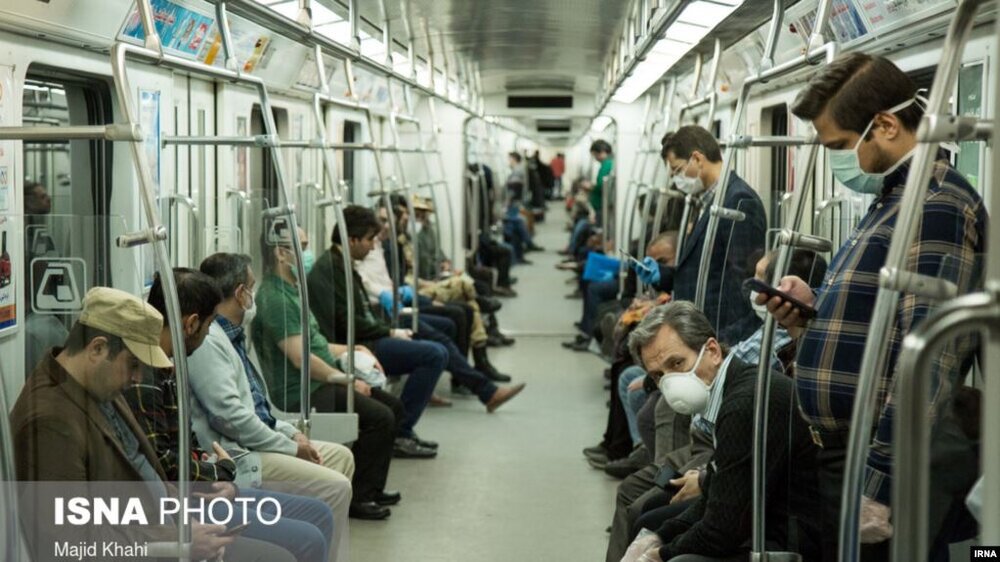TEHRAN — The UN human rights office has voiced concern about “excessive and sometimes deadly force” to ensure lockdowns and curfews due to the COVID-19 pandemic in more than a dozen countries, including Iran.
However, Iran has not enforced any kind of lockdown.
“Emergency powers should not be a weapon governments can wield to quash dissent, control the population, and even perpetuate their time in power,” UN High Commissioner for Human Rights Michelle Bachelet said in a statement on Monday, according to Reuters.
A top official from her office said about 80 countries have declared emergencies due to the new coronavirus, including 15 where the allegations were deemed most troubling.
They were: Nigeria, Kenya, South Africa, the Philippines, Sri Lanka, El Salvador, Dominican Republic, Peru, Honduras, Jordan, Morocco, Cambodia, Uzbekistan, Iran, and Hungary.
However, Georgette Gagnon, director of field operations, added at a virtual briefing in Geneva “there are probably several dozen more we could have highlighted”.
“The main concern on exceptional emergency measures is what has been described as a toxic lockdown culture in some countries,” Gagnon said. “As the High Commissioner highlighted, police and other security forces are using excessive and sometimes deadly force to enforce lockdowns and curfews.”
Suffering from the United States’ illegal and unilateral sanctions which have severely damaged its economy, the Iranian government has not enforced any sort of lockdown or curfews that would force people to stay home, arguing that imposing strict lockdown regulations will harm more people with subsistence problems than coronavirus infection.
“What garbage,” said Mohammad Marandi, a professor at the University of Tehran, in response to the UN human rights office’s inclusion of Iran in the list.
“Many complain that the govt hasn’t been nearly strict enough,” Marandi said via Twitter. “There were no lockdowns anywhere or at any time where people were forced to stay at home.”
“It seems the UN has a duty to put Iran on all available lists of violators to please their overlords in Washington,” he added.
Iran is among the countries hardest hit by the novel coronavirus pandemic. The disease has so far infected 93,657 people in the country and claimed the lives of 5,957 people.
Suffering from the United States’ illegal and unilateral sanctions that have severely damaged its economy, the Iranian government has not enforced any sort of lockdown or curfews that would force people to stay home, arguing that imposing strict lockdown regulations will harm more people with subsistence problems than coronavirus infection.
In yet another contradiction with the UN report, the U.S.-funded Radio Farda and many other foreign-based media outlets covering Iran have so far repeatedly attacked the Islamic Republic for not imposing a strict lockdown to contain the spread of the coronavirus.
Earlier this month, the government announced the implementation of the third phase of its social distancing plan, which is called “smart social distancing”. The plan includes safe reopening of businesses and other protective measures while urging the people to observe social distancing and other protective measures.
The plan rejects criticisms that the government must have avoided reopening the country quickly, and basically argues that each country should find a strategy that best fits its own circumstances.
Iranian authorities have on numerous occasions referred to U.S. sanctions as a major impediment foiling the government’s efforts to contain the deadly virus.
Last week, Mayor of London Sadiq Aman Khan said that many of the measures taken in London to counter coronavirus are similar to those taken in Tehran, and Tehran is even ahead.
Khan made the remarks in an online meeting with Tehran mayor Pirouz Hanachi on Friday.
Referring to the conditions imposed on Iran by U.S. sanctions, Khan said: “In meetings with the British government officials, I would tell them about the problems of Tehran in relation to sanctions and I hope that this problem will be solved soon.”
Hanachi told The Guardian on April 4 that “To many of us urban administrators in Iran, the onslaught of coronavirus has underscored an important fact of life: no town, city or nation can be indifferent to global crises, even in far-flung corners of our world.”
Presidential chief of staff Mahmoud Vaezi said last week that Iran is fighting two viruses, one is the coronavirus and the other is the United States’ sanctions.
According to a recently-leaked intelligence brief, U.S. sanctions have “left Iran bereft of financial resources to mount an effective public health response.”
Citing the military intelligence cable, The Nation reported on April 22 that the U.S. sanctions have “badly crippled” Iran’s economy as well as its ability to respond to the spread of the novel coronavirus.
The document, which dated April 3, warns that U.S. sanctions have left Iran “unable to order ventilators from abroad, which are crucial for treatment.”
One segment of the briefing said, “President Trump refuses to let up on choke hold.”
TAGS


No comments:
Post a Comment